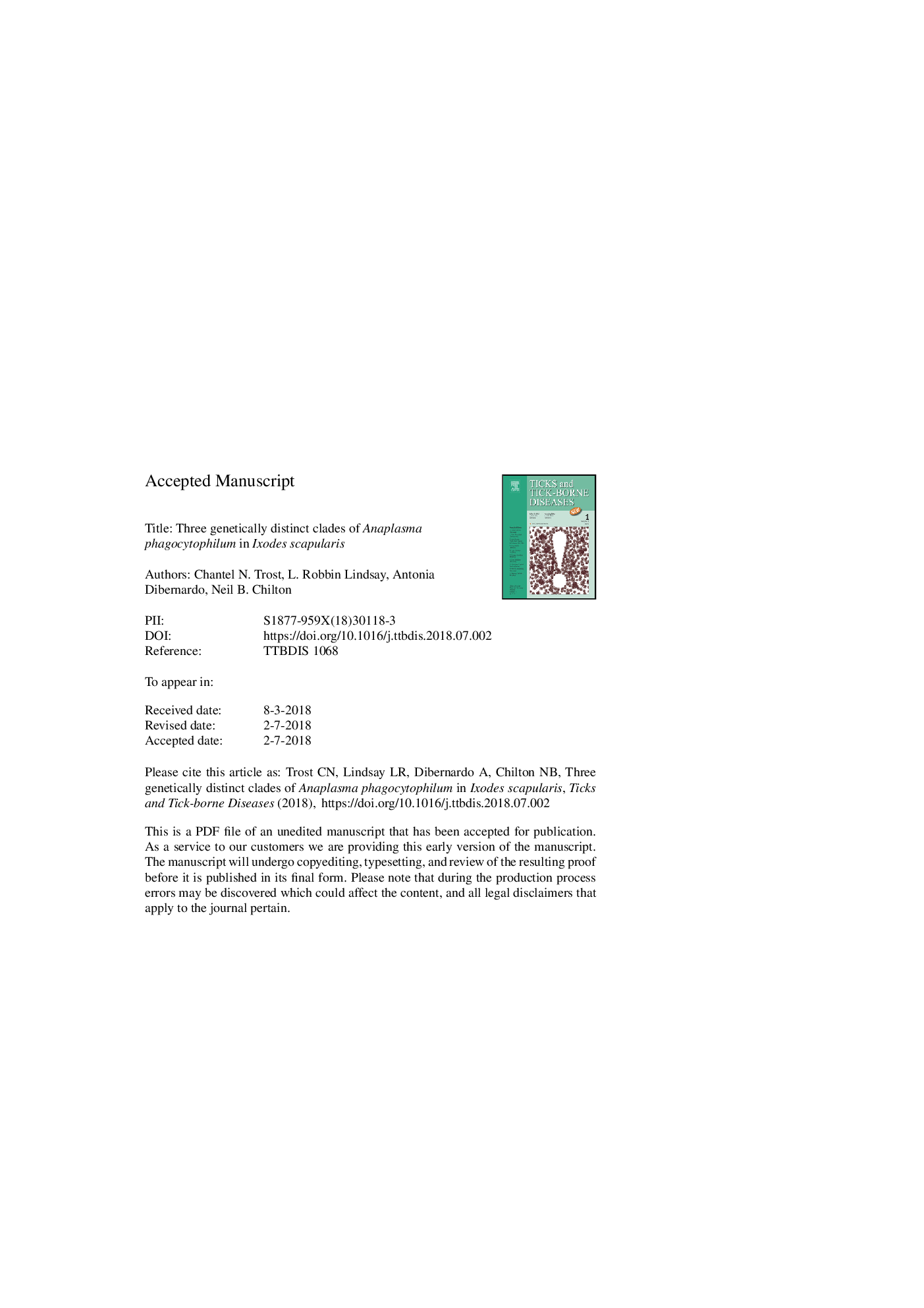| Article ID | Journal | Published Year | Pages | File Type |
|---|---|---|---|---|
| 8965641 | Ticks and Tick-borne Diseases | 2018 | 32 Pages |
Abstract
Human granulocytic anaplasmosis (HGA) is an emerging disease in Canada because of range expansion by the arthropod vector, Ixodes scapularis. These ticks carry the Ap-ha variant of Anaplasma phagocytophilum (Ap-ha), which has been implicated in causing HGA, and the Ap-variant 1, which is not associated with human infection. We report the detection of 13 genotypes of the ankyrin (ankA) gene among 76 infected blacklegged ticks. Haplotype network and phylogenetic analyses revealed that the ankA genotypes corresponding to the Ap-ha variant did not form a monophyletic assemblage. They formed two distinct clades (Clades I and III), one of which was genetically more similar in nucleotide and amino acid sequences to genotypes of Ap-variant 1 that comprised Clade II. Additional work is needed to explore the evolutionary history of A. phagocytophilum in North America, and to determine if there are differences in pathogenicity or clinical symptoms associated with the two divergent groups of the Ap-ha variant given the significant differences in ankA amino acid sequence.
Related Topics
Life Sciences
Agricultural and Biological Sciences
Animal Science and Zoology
Authors
Chantel N. Trost, L. Robbin Lindsay, Antonia Dibernardo, Neil B. Chilton,
